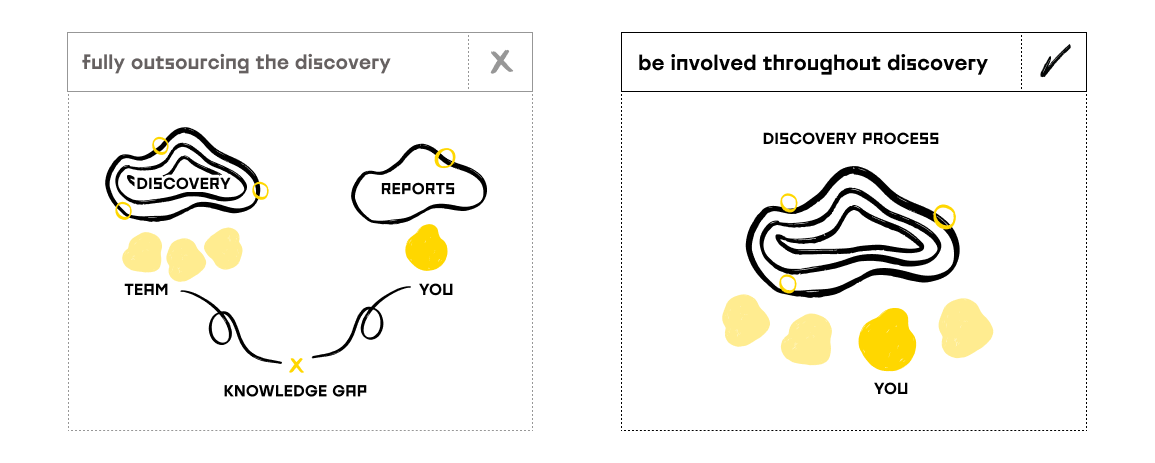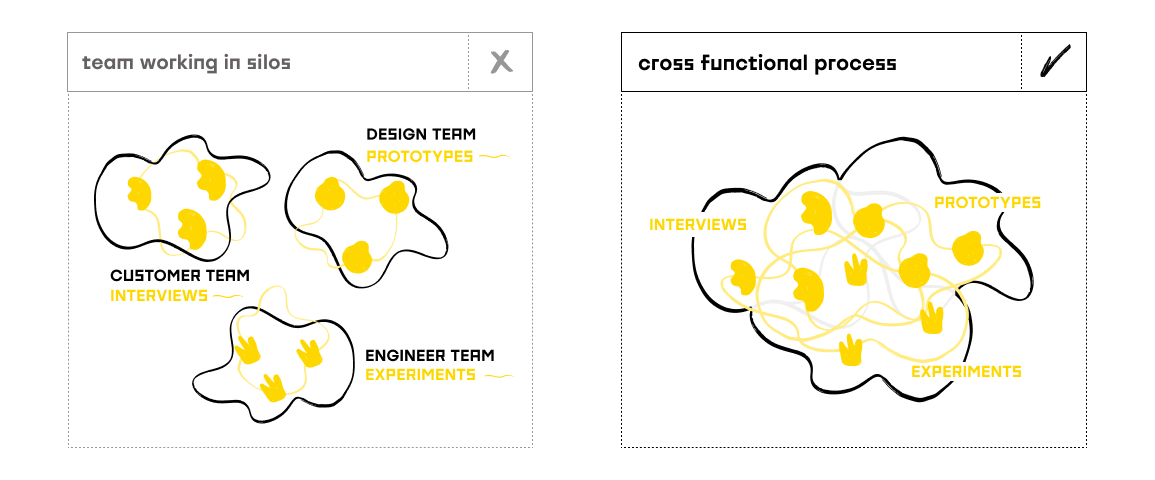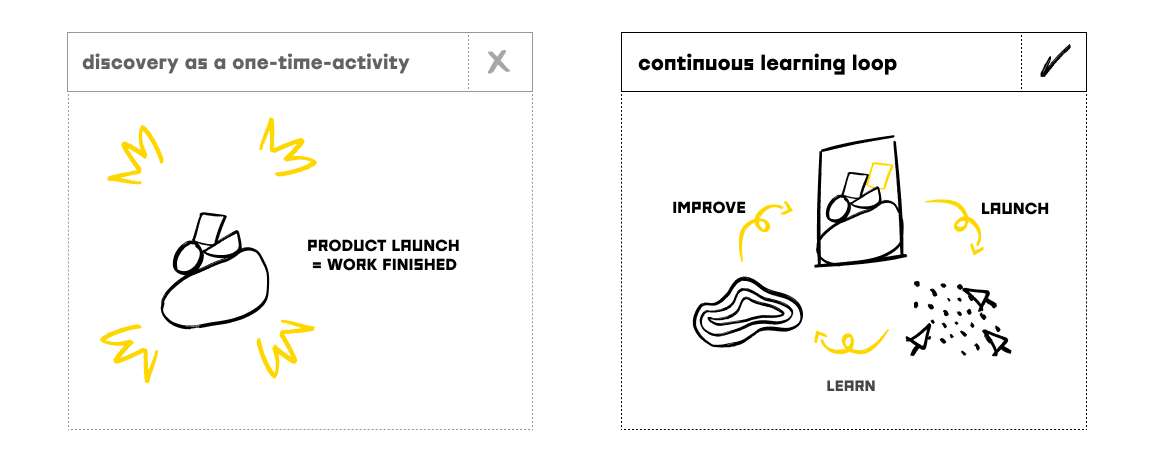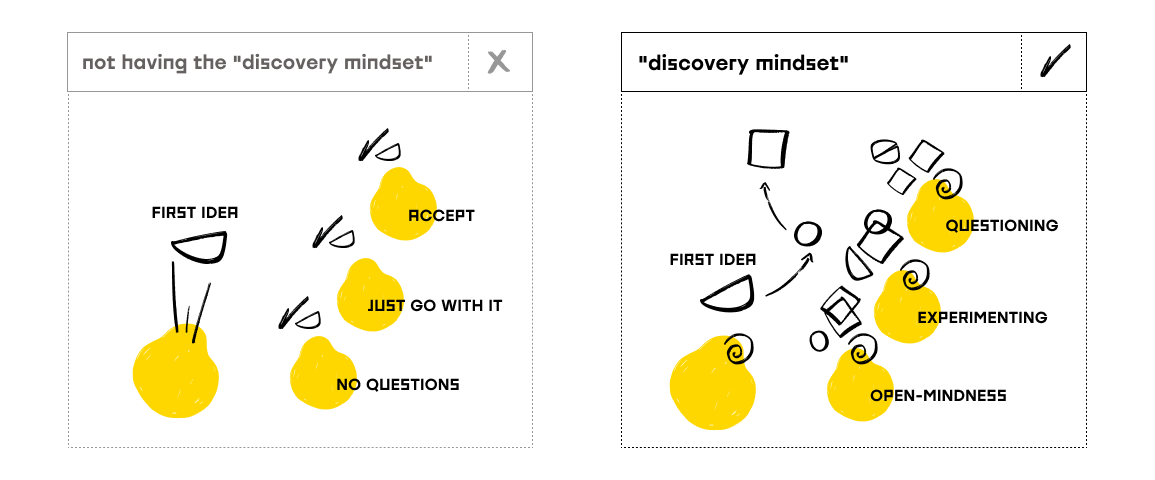
Building a digital product is one thing - but getting it just right and ensuring it fits the real needs of your clients is a whole different story. Product discovery is a phase that helps you make sure you are building the right thing for the right people. And the truth is that it should be an ongoing process. But let’s not get ahead of ourselves… in this article, we’re sharing some of the most common problems with product discovery, and how we help our clients overcome them.
1. Ideas from new products or features coming from the product/marketing team or other people in the company
Many teams have a bunch of ideas for new products or features, driven by industry trends and market knowledge. However, it’s crucial not to let these internal ideas dominate the discovery process. While internal expertise is valuable, it’s equally important to understand customer problems and needs.
We help founders avoid using the discovery process merely to validate pre-existing ideas, which can introduce bias. Instead, we guide them to focus on identifying customer problems worth solving, leading to new and relevant product or feature ideas.

2. Fully outsourcing your product discovery process
Discovery is about learning as fast as you can about your client and their problems. If you outsource the process to a company, you will not learn as much as them, just by reading all the interviews and reports.
We help you start and run this process, ensuring your involvement throughout. Our role is to ensure that the knowledge gained from the discovery process informs your product decisions.

3. The team working in silos
It’s very common to have the product and customer teams involved in the interviews with clients, then the design team dealing with prototyping, and when we want to experiment we call the engineers. This is wrong and a waste of time!
Product discovery should be a cross-functional process involving not just product managers, but also engineers, designers, and other relevant team members. This ensures a diversity of perspectives and skills, leading to a more robust discovery process.
We can help you understand the value of involving the entire team in customer interactions, ensuring firsthand understanding of customer needs and problems.

4. Not closing the discovery cycle
You and your team have worked hard. You’ve talked to customers, found their problems, and created potential solutions. You’ve designed and built a product you believe fits what your customer wants, and you’ve tested it a lot. You might feel like you’re done, but actually, the real work starts when you launch the product.
Product discovery is an ongoing process, not just a one-time activity.
Everything you learn before, during, and after you launch a new feature is important and can help you make better decisions in the future. This continuous learning loop helps keep your product aligned with customer needs and market changes.

5. Not having the product mindset
The discovery mindset involves curiosity, open-mindedness, and a willingness to question assumptions. It’s about not taking the first idea as the best one and being open to testing and learning.
We help founders adopt this mindset while also assisting in setting clear objectives for the discovery process, preventing teams from getting lost in the process.

If you think that product discovery can be beneficial for your product, go ahead and get in touch. We would love to help you!
The Non-Technical Founders survival guide
How to spot, avoid & recover from 7 start-up scuppering traps.
The Non-Technical Founders survival guide: How to spot, avoid & recover from 7 start-up scuppering traps.
